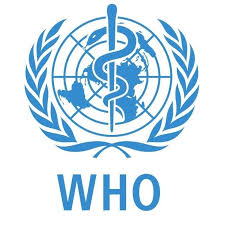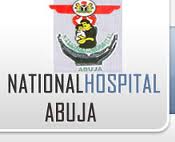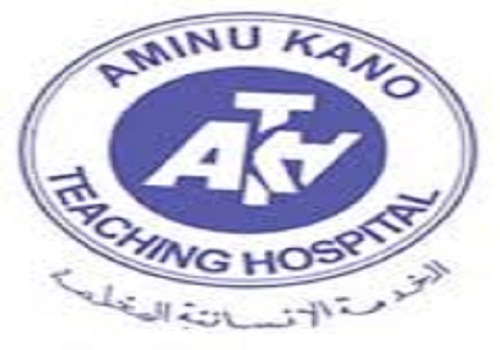Every day, no fewer than 200 people die from cancer in Nigeria. According to recent GLOBOCAN data, the country records an estimated 102,100 cases every year and the number is growing. The death burden is also very high, about 71,600 every year, many of them women, largely breast cancer patients.
Nigeria’s huge cancer burden and the current management crisis associated with the disease in the country are however not strange to the newly appointed Minister of Health, Prof. Isaac Folorunsho Adewole. With his practice at the University College Hospital (UCH) one of the nation’s cancer centres, his special research interest in gynaecologic oncology and having served as the immediate past President of the African Organisation for Research and Training in Cancer (AORTIC), he is familiar with the agony of cancer patients in the country and the trauma of seeking effective treatment in our hospitals.
This is why stakeholders expect that cancer will not be left out among several burning issues that will receive the minister’s swift and urgent attention as he settles down in office.
National Mirror investigation on the plight of cancer patients reveals a plethora of problems that have made the disease not only the most dreaded disease but one every Nigerian pray never to encounter.
 For a start, there are very few diagnostic laboratories in the country where cancer could be effectively diagnosed and these are sparsely located and grossly inadequate for Nigeria’s 170 million populations. The labs, mostly located at the national cancer centres, lack modern facilities such as advanced genetic testing now being used in several other countries. Only basic tests are available in most Nigerian diagnostic laboratories.
For a start, there are very few diagnostic laboratories in the country where cancer could be effectively diagnosed and these are sparsely located and grossly inadequate for Nigeria’s 170 million populations. The labs, mostly located at the national cancer centres, lack modern facilities such as advanced genetic testing now being used in several other countries. Only basic tests are available in most Nigerian diagnostic laboratories. This was indeed confirmed by an associate professor of pathology and Consultant Pathologist at the Lagos University Teaching Hospital (LUTH), Dr. Adetola Daramola: “The kind of cancer tests we carry out right now is mainly biopsy which involves removing a piece of tissue or a sample of cells from the patient’s body and having it analyzed in a laboratory. Here in Nigeria, what we do is basic investigations, advanced investigations is still lacking”, she told National Mirror.
Elsewhere in the developed world, cancer patients undergo genetic testing which can be used to find out whether or not a patient has inherited the gene mutation (changes) and also determine whether or not this has contributed to the cancer. This also helps to determine whether the cancer is more likely to reoccur and metastasize (spread to other organs). It can also help to predict the patient’s response to treatment.
“We don’t do advanced genetic testing, although we do the basic molecular testing to know the type of breast cancer a patient has, we do not have the equipment for complex molecular testing and other tumour profiling,” Daramola said.
According to her, only about eight to ten centers do the basic molecular testing. This of course means that more people will continue to travel outside for proper diagnosis and treatment, a situation that should receive the Minister’s attention.
To avoid medical tourism, there is a need for government to establish more advanced diagnostic cancer centres with advanced equipment such as 3D digital mammography, CT-Scan and Breast MRI for special diagnosis.
According to experts the Minister will also need to urgently address the problem of inadequate radiotherapy machines and persistent break down of the few on ground. For instance, the Head, National Committee On Cancer Control in Nigeria, Federal Ministry Of Health, Professor Francis Durosinmi-Etti, confirmed to National Mirror that out of the seven linear accelerators in the country, only two are working; one at Usman Danfodio University Teaching Hospital (UDTH), Sokoto, and another at National Hospital, Abuja, which has just been repaired. The machines are stretched due to overcrowding and the constant breakdown of the only functional linear accelerator at Abuja adversely affects patient’s treatment.
“Treatments are delayed, patients are told to come back due to machine breakdown. A cancer patient needs to have an uninterrupted 6 weeks radiotherapy session as part of the treatment. The extension or discontinued treatment causes the disease to develop resistance or to progress”, he said.
Repairing these machines just has to be the immediate task before the new minister, Durosinmi-etti, also the President of CEAFON, insists.
On the quality of the machines, a Consultant Oncologist and Radiotherapist at LUTH, Dr. Muhammed Habeebe, said the linear accelerators are not sophisticated enough to provide accurate radiation therapy.
“What we have is the basic linear accelerator, not the complex. The results are not as accurate as the complex ones. With a more accurate machine, you will be able to deliver a higher dose of radiation with fewer side effects and less harm done to the patient”, he explained. Hence, to be able to compete with other nations such as India, Dr. Habeebe said Nigeria needs advanced linear accelerators.
However, due to lack of fund, the immediate solution, according to Durosinmi-Etti, will be for government to repair the linear accelerators on ground. “It is technically possible to repair the 7 machines between now and the next 60 days. After this, the next plan, medium term plan, is to have at least about 200 radiotherapy machines, which is the ideal number for Nigeria”, he said.
Radiotherapy is an integral part of cancer management, “about 60 per cent of cancer patients will require radiotherapy to control the disease to some extent”, he further divulged.
Although few private hospitals offer radiation therapy, Durosinmi-Etti, explained that the radiotherapy machines found at the private hospitals are Colbat unit which offer less, compared to a linear accelerator. “The patient’s safety and health is protected with a linear machine so there is a need for government to repair the machines”, he said.
“We need to be able to cure those diagnosed, not tell them to come back in 3 months’ time because of lack of facilities. We need equipment to work with”, Prof. Durosinmi- Etti, insists.
Aside the need for cancer facilities, there is a need to increase the number of oncologists and other cancer specialists in the country. The government can do well to invest in preventive treatment by creating more awareness on early detection and cancer screening especially in rural areas, the experts suggests. Cost of treatment remains a major hindrance to accessing cancer treatment in Nigeria. From diagnosis to chemotherapy, treatment remains unaffordable for an average Nigerian with minimum wage of N18,000
“Patients spend as much as N67, 000 for biopsy and other tests while an average mastectomy (breast surgery) costs between N80, 000 and N150, 000 in government hospitals. For chemotherapy, cost ranges between N100, 000 and N500, 000 per treatment. Targeted therapy such as Herceptin (for the treatment of earlystage breast cancer which has spread into the lymph nodes) costs a whopping 1.3m and you need about 3 course treatments. There are drugs that cost as much as N960, 000,” Prof. Durosinmi-Etti divulged.
Patients pay for treatment out of pocket forcing them to abandon treatment half way. Although treatment plan is now said to be included in National Health Insurance Scheme (NHIS) according to Assistant General Manger, NHIS, Dr. Christopher Okah, majority are not yet accessing them.
Considering the large number of new cancer cases each year, a lot more still needs to be done to assist with treatment. “Government needs to start thinking of alternative funding model that can help patients pay for treatment such as partnering with private companies that produce anti-cancer drugs”, Roche Country Director, Mr. Herman Addae told National Mirror.
Recently, the Nigeria Institute of Medical Research (NIMR) established a cancer research Centre. But the institute’s Director General, Prof. Innocent Ujah is already crying for necessary funds to ensure that the centre performs to the optimum. The minister certainly has to look into this.
By: Franka Osakwe
National Mirror News
ABUJA: Training Schedule for Basic Life Support BLS, Pediatric Advanced Life Support (PALS), Advanced Cardiovascular Life Support ACLS, First Aid, CPR, AED
PORTHARCOURT: Training Schedule for Basic Life Support BLS, Pediatric Advanced Life Support (PALS), Advanced Cardiovascular Life Support ACLS, First Aid, CPR, AED
LAGOS: Training Schedule for Basic Life Support BLS, Pediatric Advanced Life Support (PALS), Advanced Cardiovascular Life Support ACLS, First Aid, CPR, AED



